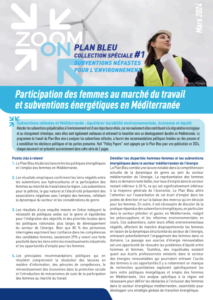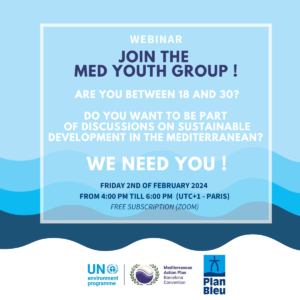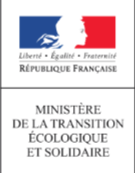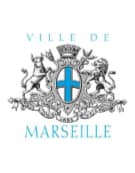1 Context and objectives
About Plan Bleu
This consultation is published by Plan Bleu, Regional Activity Center of the Mediterranean Action Plan (MAP), established in the form of a French association in Marseille, France. The MAP is one of the main components of the Regional Seas Programme of the United Nations Environment Programme (UNEP). It has a legal instrument: the Barcelona Convention and relies on six regional activity centres (“RACs”) responsible in particular for promoting the implementation of the various protocols attached to the convention. Plan Bleu is one of these six centres mandated by the twenty-one countries Parties to the Barcelona Convention and the European Union (Contracting Parties to the Barcelona Convention). Plan Bleu acts as an observatory of the environment and sustainable development in the Mediterranean, and conducts thematic, systemic and prospective analyses to enlighten decision-makers of the region on the environmental risks and the challenges of sustainable development.
Context
The Mediterranean Sea holds profound cultural, ecological, and economic significance for the nations bordering its shores. However, it also faces mounting environmental challenges due to urbanization, industrialization, and maritime activities. These challenges threaten its delicate balance and necessitate urgent action to preserve its ecological integrity and safeguard the well-being of its inhabitants. The region grapples with escalating environmental pressures, including pollution from various sources such as industrial emissions and maritime transport.
Important efforts to deal with the challenges have taken place, specifically, the 79th session of the Marine Environment Protection Committee of the International Maritime Organization (MEPC 79) adopted on December 15, 2022, the amendments to Annex VI to the International Convention for the Prevention of Pollution from Ships (MARPOL) concerning the Mediterranean Sea Emission Control Area for Sulphur Oxides and Particulate Matter (Med SOx ECA), with effect from May 1, 2025, to further limit atmospheric pollution from ships. UNEP/MAP served as a forum for intergovernmental negotiations on the Med SOx ECA and catalyzed progress, notably through the scientific and technical support provided by the Regional Marine Pollution Emergency Response Centre for the Mediterranean Sea (REMPEC) and Plan Bleu.
More efforts are needed however with respect to other pollutants, such as Nitrogen Oxides (NOx) which pose significant threats to air and water quality, jeopardizing the health of ecosystems and human populations alike. Poor air quality resulting from NOx emissions has emerged as a pressing public health issue in Mediterranean coastal areas. Meanwhile, such emissions contribute to ocean acidification and eutrophication, endangering marine ecosystems and compromising the sustainability of fisheries—a vital economic resource for many Mediterranean nations. Furthermore, NOx emissions, besides exacerbating local air quality issues, contribute to climate warming and influence regional weather patterns. Overall, NOx emissions have a higher external cost when the affected population is large and dense. Indeed, the Mediterranean is highly populated, especially along its coastlines, and this population and its coastal concentration are increasing. Therefore, the negative externalities of NOx could be more significant there than in other less populated seas. Addressing environmental challenges in the Mediterranean necessitates collaborative efforts among coastal states, industry stakeholders, and international organizations.
This is why, against this backdrop, UNEP/MAP has been supporting, through REMPEC, the preparation of a detailed Technical and Feasibility Study to assess the relevant existing and on-going studies as well as to examine the possible designation of the Mediterranean Sea, as a whole, as an Emission Control Area for Nitrogen Oxides (Med NOx ECA) pursuant to MARPOL Annex VI, including health and socio-economic impacts on the Mediterranean region and the individual Contracting Parties to the Barcelona Convention (hereinafter referred to as the Technical and Feasibility Study), and the preparation of draft recommendations, including a draft roadmap.
With regard to Plan Bleu:
- it has established experience on maritime pollution, having published in 2022 an in-depth economic impact assessment related to sulphur oxides (SOx) emissions from maritime transport in the Mediterranean Sea, in cooperation with REMPEC and MED POL. The main focus of the report was on providing additional economic impact assessment to support the proposal for the designation of the Med SOx ECA, investigating potential changes in the competitiveness of the shipping industry due to compliance requirements, including possible rerouting of shipping routes and modal shifts to other transport options.
- it is part of the MAP NOx ECA Technical Committee of Experts (NECA TCE) that will review and provide valuable feedback to the Technical and Feasibility Study.
- it is engaged to contribute to the UNEP/MAP efforts, by also implementing its own Work program that shall produce “auxiliary outputs” on the Med NOx ECA theme, including policy-oriented technical paper(s) and a workshop, to provide additional insights and perspectives on the potential socio-economic impacts of the possible designation of the Med NOx ECA.
Objectives of Plan Bleu’s Work Program
The objectives of the Plan Bleu Work Program are:
- To develop evidence-based policy-oriented technical papers addressing the potential socio-economic impacts of the possible designation of the Med NOx ECA, also taking into account the outcome of the Technical and Feasibility Study, on at least one of the following sectors : fisheries, shipping, or tourism.
- To facilitate discussion, share insights, and gather feedback from relevant stakeholders through a dedicated workshop, in cooperation with relevant actors including REMPEC.
2 Task description
The objective of the present call is to select consultants that will produce Policy-Oriented Technical Papers. Each paper shall focus on one of the following sectors : fisheries, shipping, or tourism.
The technical proposal shall specify the sector of focus (fisheries, shipping or tourism) and the geographic scope.
The mission will produce:
- two preliminary deliverables:
- a concept note (incl. workplan and methodology) and
- a first draft of the Technical Paper (25-30 pages, not including annexes)
- the main deliverable, which is the Final Technical Paper (30-35 pages, not including annexes).
The possible designation of the Med NOx ECA holds the potential to catalyze a transition towards a more sustainable blue economy in the Mediterranean. By reducing pollution, promoting green technologies, and enhancing ecosystem resilience, it would create opportunities for economic growth while safeguarding the marine environment for future generations.
- Fisheries Sector: Implementing NOx emission control measures would lead to a reduction in pollution (marine and air) which would enhance the overall health and resilience of marine ecosystems, supporting sustainable fisheries and aquaculture. The technical paper may conduct a comprehensive analysis of the potential socio-economic impacts of the possible designation of the Med NOx ECA on the fisheries sector in selected Mediterranean Countries, taking into account the outcome of the Technical and Feasibility Study. Including at least two countries in the analysis would be strongly encouraged. This would include, among other things, evaluating changes in fishing practices, catch volumes, and market dynamics. It should also include an assessment of the implications for employment within the fisheries sector, including potential job creation or displacement, as well as an analysis on how shifts in fishing patterns and regulations may affect livelihoods in coastal communities. The technical paper would offer evidence-based policy recommendations to mitigate adverse effects and capitalize on opportunities arising from the possible designation of the Med NOx ECA. This may involve proposing measures to support sustainable fishing practices and enhance the resilience of fisheries-dependent communities. Methodologies may include bioeconomic modelling, interviews with fishery stakeholders, and analysis of historical catch data.
- Shipping Sector: The possible designation of the Med NOx ECA would incentivize the adoption of cleaner technologies and practices within the maritime sector. Taking into account the outcome of the Technical and Feasibility Study, the technical paper: 1. May conduct an analysis to evaluate the economic implications of compliance with NOx emission regulations for shipping companies; 2. could assess the potential costs of implementing cleaner technologies against the long-term benefits of improved air quality and reduced health impacts; 3. could also examine the competitiveness of Mediterranean ports and shipping routes in light of the possible designation of the Med NOx ECA; 4. could Identify strategies to maintain competitiveness while meeting environmental standards, such as incentivizing the adoption of low-emission technologies. The methodologies used in the paper may include economic modelling, cost-benefit analysis, and stakeholder consultations with shipping companies, port authorities, and maritime industry experts.
- Tourism Sector: Evolutions are to be expected for tourism as well. The paper would need to assess the need for infrastructure development to support sustainable tourism practices following the possible designation of the Med NOx ECA, taking into account the outcome of the Technical and Feasibility Study. This may involve evaluating investments in eco-friendly accommodations, transportation options, and recreational facilities. The technical paper may also investigate how the perception of the Mediterranean region as an environmentally conscious destination may influence tourist behaviour and preferences. Methodologies may include surveys, econometric modelling, and scenario analysis to assess changes in tourist behaviour and spending patterns.
- Whatever the sector of focus, the paper is expected:
- to discuss topics such as job creation, industry competitiveness, and regulatory frameworks for environmental compliance. Assessing the potential for job creation resulting from the implementation of NOx emission control measures is key. Consideration should also be given to the potential for job displacement in sectors facing increased compliance costs and the need for targeted interventions to support affected workers and communities. Investigating the role of innovation and technological advancement in maintaining industry competitiveness would also be appreciated. This includes examining incentives for research and development, technology transfer, and capacity building to support the adoption of clean technologies and sustainable practices in a given sector (or cross-sector).
- include a sub-section that explores mechanisms to incentivize green investments in the Mediterranean region following the possible designation of the Med NOx ECA. This may involve examining financial incentives, such as tax breaks or subsidies, to encourage businesses to adopt environmentally friendly practices. It may also involve identifying opportunities for public-private partnerships to finance green infrastructure projects and sustainable development initiatives. This could include collaborations between governments, businesses, and international organizations to fund renewable energy projects, waste management systems, and eco-tourism ventures.
Plan Bleu will hold a workshop in 2025 (early March, tentative), in cooperation with relevant actors including REMPEC, that will serve as a platform for presenting and discussing the technical paper(s) described above. Following the discussions of the workshop, and the obtained comments from a variety of relevant stakeholders, authors of the technical papers will have the opportunity to incorporate the feedback and insights gathered into their final papers. This iterative process will ensure that the papers accurately reflect the diverse perspectives and stakeholder input received, enhancing their relevance and credibility.
3 Expected schedule
- June 21st : Receipt of Technical Proposals and Review and Selection of Consultant(s)
- mid-July : Contractualisation and launching work on the Technical Paper(s) including Kick-off meeting with Plan Bleu to review the proposed work plan, methodology and plan regular coordination meetings to take stock of progress.
- December : Submission of first draft(s)
- early-March 2025 : Workshop to discuss first draft(s)
- end-March 2025 : Submission of the final version of the Technical Paper(s) (maximum 25 pages)
4 Selection of the expert
The assignment of producing Technical Papers is open to consulting firms, associations/consortiums of consultants, and individual consultants. All documents will be produced in a single language (English or French). The layout of the publication will be the responsibility of Plan Bleu.
Evaluation will primarily be based on the relevant implementation methodology for the preparation of the technical paper. Qualified candidates for this assignment must also meet the following criteria:
Education:
- Minimum of a master’s degree in a field relevant to this assignment (fisheries, shipping and/or tourism), PhD is preferred
Experience and Skills:
- Minimum of 5 years of relevant experience in environmental economics and ecology
- Thorough knowledge of NOx emission issues and regulations, including MARPOL Annex VI
- Work experience in the Mediterranean region is highly desirable
- Excellent writing, analytical, and synthesis skills
- Knowledge of methods for quantifying socio-economic impacts
- Familiarity with stakeholders and issues related to sustainable development in the Mediterranean region
- Proficiency in English and French
The selection of the consultant(s) will be based on the evaluation of their technical proposal (their skills in relation to the required qualifications described above and the proposed methodology) as well as a letter of interest and a resume making reference to these Terms of Reference. A financial offer, which shall not exceed €5,000 gross, shall include all costs, ancillary expenses, and taxes (including any applicable VAT). Candidates must provide references for their previous work on similar subjects as well as relevant documents via email to the address indicated below if they are not provided through an active web link. Furthermore, candidates must demonstrate their legal capacity to sign contracts and issue invoices according to the legislation of their country.
5 Contractual and financial terms
Plan Bleu expects to select three Technical Papers. Each Technical Paper will be awarded with €5,000 gross.
A first payment (30%) will be provided after successful selection of the draft. A second payment (30%) will be provided on receipt of the first draft of the paper. A third (final) payment (40%) will be provided after the final draft is submitted, provided the Paper meets the established quality standards.
The acceptance of the offer of the successful tender will implicate the acceptation of the conditions and schedules detailed in this ToR.
A duly-issued invoice will be required for payment at the presentation of the final document. The payment term for the invoice will be by bank transfer 15 days after the invoice date (bank account details should be detailed).
The tax legislation in force at the date of acceptance of the offer will be applied.
Flights and accommodation to the Plan Bleu Workshop will be covered as part of a separate budget.
6 How to apply
- Applications must be submitted by 21st June 2024
- Applications must be submitted through Plan Bleu website: www.planbleu.org and by e-mail at: [email protected]
- Applications must contain a technical offer (specifying the sector of focus), as well as a letter of interest and a resume making reference to these Terms of Reference.
- Candidates must demonstrate their legal capacity to sign contracts and issue invoices according to the legislation of their country. For this purpose, they must also include the following documents in their proposal:
For consulting firms:
- Recent KBIS extract (less than 3 months old) for France
- Document confirming company registration in their country, including the indicated tax number (for foreign countries)
- Full bank account details (BIC, IBAN or BBAN) provided by the bank.
For individual consultants:
- Certificate of registration in the Directory of Companies and Establishments.
- Document certifying the right to practice this profession (such as a registration certificate) according to the legislation of their country, including the tax number (for foreign countries).
- Full bank account details (BIC, IBAN or BBAN) provided by the bank.















